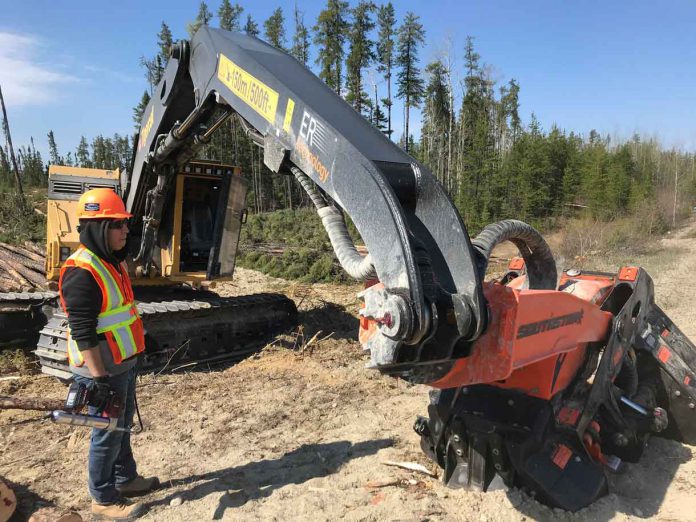By John Yakabuski
Minister of Natural Resources and Forestry

Minister of Natural Resources and Forestry
QUEENS PARK – The forest sector has been a vital segment of Ontario’s economy for generations. Today, it’s a $16-billion industry that provides 155,000 direct and indirect jobs across the province.
In communities throughout Northern and rural Ontario, good jobs in this renewable sector pay for minor hockey, back-to-school supplies and food for the kitchen table. They keep families and communities strong by offering opportunities for young people to stay close to home.
Under the leadership of Premier Doug Ford, our government has a plan to build Ontario together with a better quality of life and a higher standard of living in every region of the province.
For Northern and rural communities, that means supporting the forest industry. Forestry is a critical source of employment in these communities, providing well-paying jobs in regions with few other industries.
Let’s also not forget the industry’s role in meeting a growing consumer preference for renewable and more environmentally conscious products. Products made from wood are a viable replacement for single-use plastics. A United Nations study last year found that global demand for forest products is expected to increase by more than 30 per cent by 2030. Ontario is well-positioned to contribute to this need because of our strong record of responsible forest management.
Earlier this month, I introduced Ontario’s draft Forest Sector Strategy, which aims to stimulate job creation and promote economic growth.
Critically, the strategy’s main pillar is Promoting Stewardship and Sustainability. We know that for Ontario’s forest industry to remain strong and vibrant in the long term, we need to ensure that our Crown forests remain healthy, diverse, and productive.
For more than two decades, this has been accomplished by one landmark piece of legislation — the Crown Forest Sustainability Act (CFSA). The CFSA provides for the sustainable management of Crown forests in a manner that must have regard for plant and animal life, water, soil, air and social and economic values.
Co-operation with the forest industry, municipal partners, and Indigenous communities has earned Ontario a well-deserved reputation as a world leader in sustainable forest management.
Another pillar of the draft strategy is Putting More Wood to Work, which aims to reduce regulatory burdens for industry and provide certainty in the wood supply while continuing to protect the health and diversity of life in our forests.
In 2008, 2013 and again in 2018, acknowledging the concerns raised from northern communities and First Nations, the previous Liberal government granted forestry operations temporary regulations under the Endangered Species Act (ESA) to avoid unnecessary duplication, given the protection measures already prescribed by the CFSA. The current temporary regulation is set to expire in June 2020.
This arrangement has worked well, but its temporary nature — relying on reviews and decisions every few years — has created uncertainty in the forest sector. It has held the sector back from investing and threatened thousands of jobs across this province.
It’s time for a solution that will finally give northern and rural communities the tools and opportunities they need to reach their full potential. We believe this can be achieved in a manner that considers species at risk and their habitats as well as create economic development in the forest sector.
My ministry has posted a number of proposals on the Environmental Registry intended to improve forest management. Included among these is a proposal to authorize forest activities solely under the CFSA, without unnecessary duplication through the ESA. We continually review our forest practices to ensure the best available science is applied when we develop our forest management plans.
We have heard the call from Northern and rural communities that they need the certainty that good forest-industry jobs will be available in the long term. We welcome your thoughts on our proposal, which is available for comment on the Environmental Registry until January 20, 2020.







